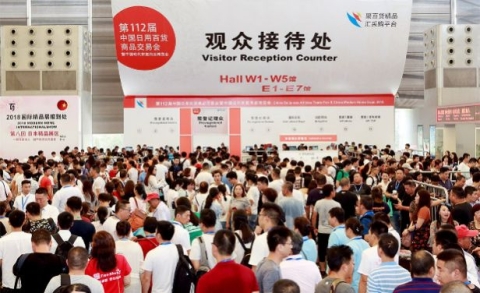Global Industry Performance Review Focuses on China, Digital Revolution

The growth of the Chinese trade show market is imminent and could mean big things for the global exhibitions industry. That is among the key takeaways from the comprehensive Global Industry Performance Review, which is now available for order.
With the pandemic on its heels as countries re-emerge, the United States and China appear to be in the best shape economically. The result is the industries already on the rebound have resumed plans for in-person trade shows and conferences, which is music to the ears of destinations announcing the resumption of large-scale gatherings at convention centers and other venues. Boston, Detroit and Atlantic City are among the most recent U.S. hubs to announce post-pandemic plans.
Meanwhile, on the other side of the world, earth-shattering expansion is on the horizon. The GIPR notes 18 venues are already under construction in China with another 19 in the works. “China is set to become the largest consumer market in the world with ever-increasing purchasing power — a favorable basis for the exhibition business,” the report predicts.
The construction is a sign of the growing maturity of the market, which so far is heavily invested in three major Eastern blocks, including Beijing. “The venue expansion opens up big time,” said Jochen Witt, president and CEO of the consultancy firm jwc, which published the GIPR. “It opens a lot of opportunities for event organizers.”
But three of the country’s largest shows were recently on the country’s other coast, an indication of where exhibitions are headed. Jochen, the former president of UFI, the Global Association of the Exhibition Industry, noted that 90% of Chinese trade shows are relatively small in scale but the country’s industry is benefiting from international trade show organizers operating with greater frequency there.
So important is China’s continued success that the GIPR for the first time dedicated an entire section to it. Not only that, the section takes up 60 pages of the full report, about the same amount as the emerging technological advancement occurring as a result of the pandemic.
In regard to the hybrid evolution, Witt stressed a new mindset must be adopted in creating a 365-day approach to engaging event communities. “Forget direct monetizing of an online event,” he said. “That’s the wrong direction.” Rather, he said, digital activities should be viewed holistically as avenues to reach out to customers via content, new products and more.
To order the full GPIR, click here.
Don’t miss any event-related news: Sign up for our weekly e-newsletter HERE and engage with us on Twitter, Facebook, LinkedIn and Instagram!


Add new comment